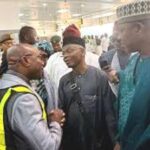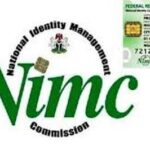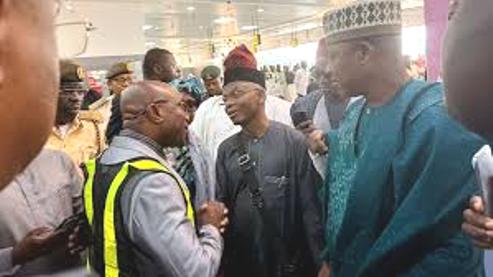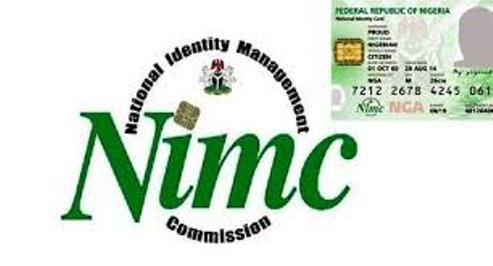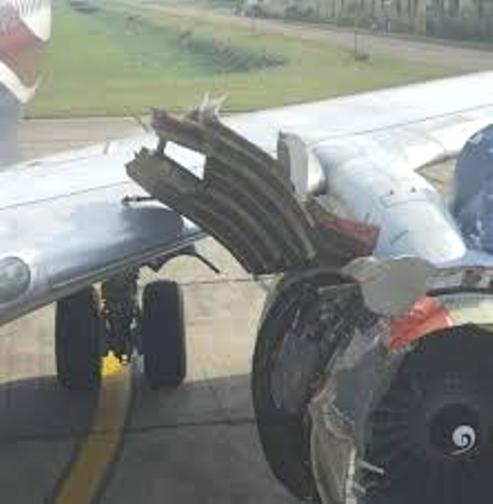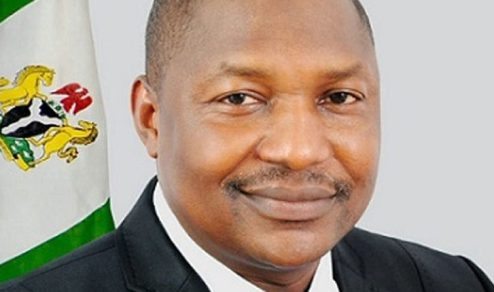
LAGOS DECEMBER 10TH (NEWSRANGERS)-Prominent Senior Advocates of Nigeria and the opposition Peoples Democratic Party members, on Wednesday, faulted the claim by the Attorney-General of the Federation and the Minister of Justice, Abubakar Malami, SAN, that the National Assembly had no powers to summon the President, Major General Muhammadu Buhari (retd.) over the rising insecurity in the country.
Malami had said this in a statement titled, ‘Buhari’s summons: NASS Operates outside constitutional bounds’, on Wednesday.
The House of Representatives, led by the Speaker, Femi Gbajabiamila, had last week invited Buhari over the rising insecurity in the country, especially the recent killing of over 43 rice farmers in Borno State.
An aide to the President, Lauretta Onochie, had revealed that Buhari would appear before a joint session of the National Assembly on Thursday. However, reports began to filter in on Tuesday that the President had decided not to attend the meeting.
The AGF said security matters remained the exclusive preserve of the executive arm of government and the National Assembly must not forget this.
He said, “The management and control of the security sector is exclusively vested in the President by Section 218 (1) of the Constitution as the Commander-in-Chief of the Armed Forces, including the power to determine the operational use of the armed forces. An invitation that seeks to put the operational use of the armed forces to a public interrogation is indeed taking the constitutional rights of law making beyond bounds.
“As the Commander-in-Chief, the President has exclusivity on security and has confidentiality over security. These powers and rights he does not share. So, by summoning the President on national security operational matters, the House of Representative operated outside constitutional bounds. The President’s exclusivity of constitutional confidentiality investiture within the context of the constitution remains sacrosanct.”
Malami said the President could freely address the National Assembly whenever he wanted, but could not be summoned to do so.
“Mr President enjoys constitutional privileges attached to the office of the President, including exclusivity and confidentiality investiture in security operational matters, which remains sacrosanct,” he stated.
The AGF added that the National Assembly had no “constitutional power to envisage or contemplate a situation where the President would be summoned by the National Assembly on operational use of the Armed Forces.”
The right of the President to engage the National Assembly and appear before it is inherently discretionary in the President and not at the behest of the National Assembly,” Malami stated.
He said Buhari had been able to effectively tackle insecurity and recover land that was hitherto being occupied by Boko Haram.
Malami added, “President Muhammadu Buhari of the Federal Republic of Nigeria has recorded tremendous success in containing the hitherto incessant bombing, colossal killings, wanton destruction of lives and property that bedevilled the country before taking the helm of affairs of the country in 2015.
“The confidentiality of strategies employed by the President as the Commander-in-Chief of the Armed Forces of the Federal Republic of Nigeria is not open for public exposure in view of the security implications in probable undermining of the war against terror.”
SANs fault AGF, say NASS can summon President
A Senior Advocate of Nigeria, Femi Falana, who noted that the President had been under pressure from the All Progressives Congress governors not to honour the invitation for fear that they might be similarly invited to address their respective houses of Assembly, said the National Assembly had the powers to summon the President to appear before it.
He said, “The members of the House of Representatives unanimously resolved to invite President Muhammadu Buhari to address them on the state of the nation with respect to the huge funds appropriated for the war on terror without tangible results.
“The President accepted the invitation and announced that he would address the House on Thursday, December 10, 2020. Regrettably, the President has been under pressure from APC governors not to honour the invitation for fear that they too may be similarly invited to address their respective houses of Assembly.
“On his part, the Attorney-General of the Federation has questioned the constitutional power of the National Assembly to invite the President on the grounds that as the Commander-in-Chief of the Armed Forces, he cannot be compelled to disclose operational details of the defence of the country. With respect, the President is under a moral and legal obligation to honour the invitation. Having accepted the invitation, the President should not allow himself to be embarrassed by turning round to turn down the invitation.
“By the combined effect of sections 88 and 89 of the Constitution, the National Assembly is empowered to summon any public officer, including the President, in the course of investigating any matter concerning which it has the power to make laws and the conduct of affairs of any person, authority, ministry or government department charged, or intended to be charged, with the duty of or responsibility for executing or administering laws enacted by the National Assembly.”
Another lawyer, Norrison Quakers, SAN, faulted Malami’s stand that the President could not be summoned by the National Assembly.
Quakers noted that the National Assembly, as the organ of government that enacts laws, had the right to summon violators of any provisions of the constitution, including the President of the country.
He said, “The National Assembly does not lack the powers to invite the President; the law on this is very clear. It will be recalled that legislative power resides in the National Assembly and it also has the power to impeach a President when he violates the provisions of the constitution, but unfortunately, a lot of things in this country have been politicised that we’re no longer following the rule of law.
“The law empowering the National Assembly is such that any law it enacts, it has the legislative competence to recall operators of the law to come before it and explain their challenges, including the President of the Federal Republic of Nigeria; so, what the AGF has stated is a political statement and not a statement of law.
“If there are security challenges in the country, the President must be summoned to appear before the National Assembly to explain why security is a challenge in the country.”
Similarly, constitutional lawyer and human rights activist, Mike Ozekhome (SAN), faulted Malami’s position.
Ozekhome said, “I am not impressed that presidential aides dampen natural integrity by always telling the President to do what is wrong, even at the expense of the good of the citizens.
“Even, if the Constitution does not provide for such, the buck stops on the table of the President.
“When Buhari’s regime is gone, everybody will remember the name Buhari and not Malami.
“To me, I think he should give the best advice to the President in the interest of the country. And such advice should bring development and growth and not self-history.
“Even, if the Constitution does not say so, our system of governance is patterned after America’s, where the citizens see their President every day. When last did we see Buhari? We only hear from the media aides. Malami is indulging in self-history.”
He added, “It is right and ethical for Buhari to appear and address the National Assembly on the state of the nation. The National Assembly has the constitutional power as enshrined in Section 5 of the 1999 Constitution.
“By sections 88 and 89, it has the power of oversight over any person or arm of government.
Punch

